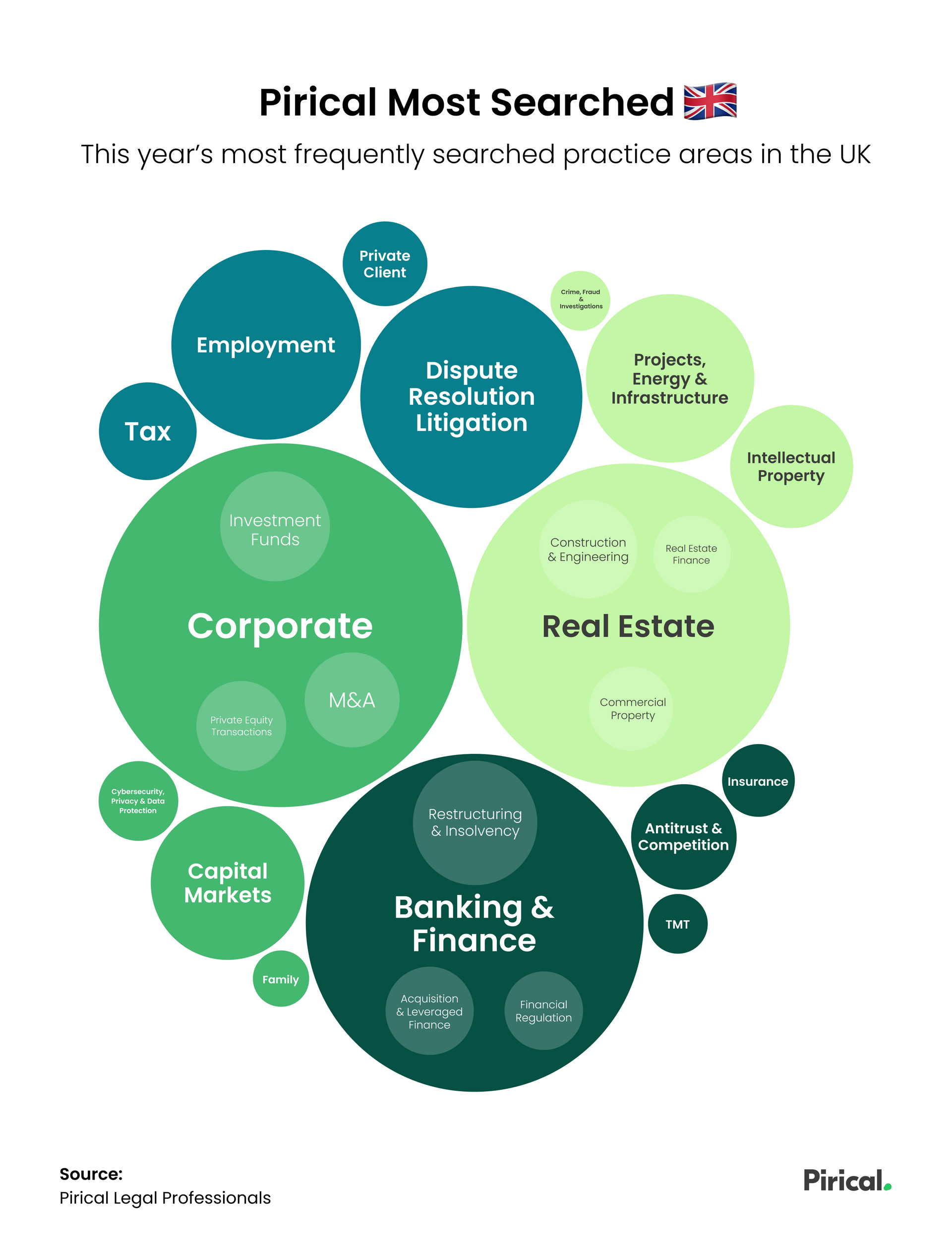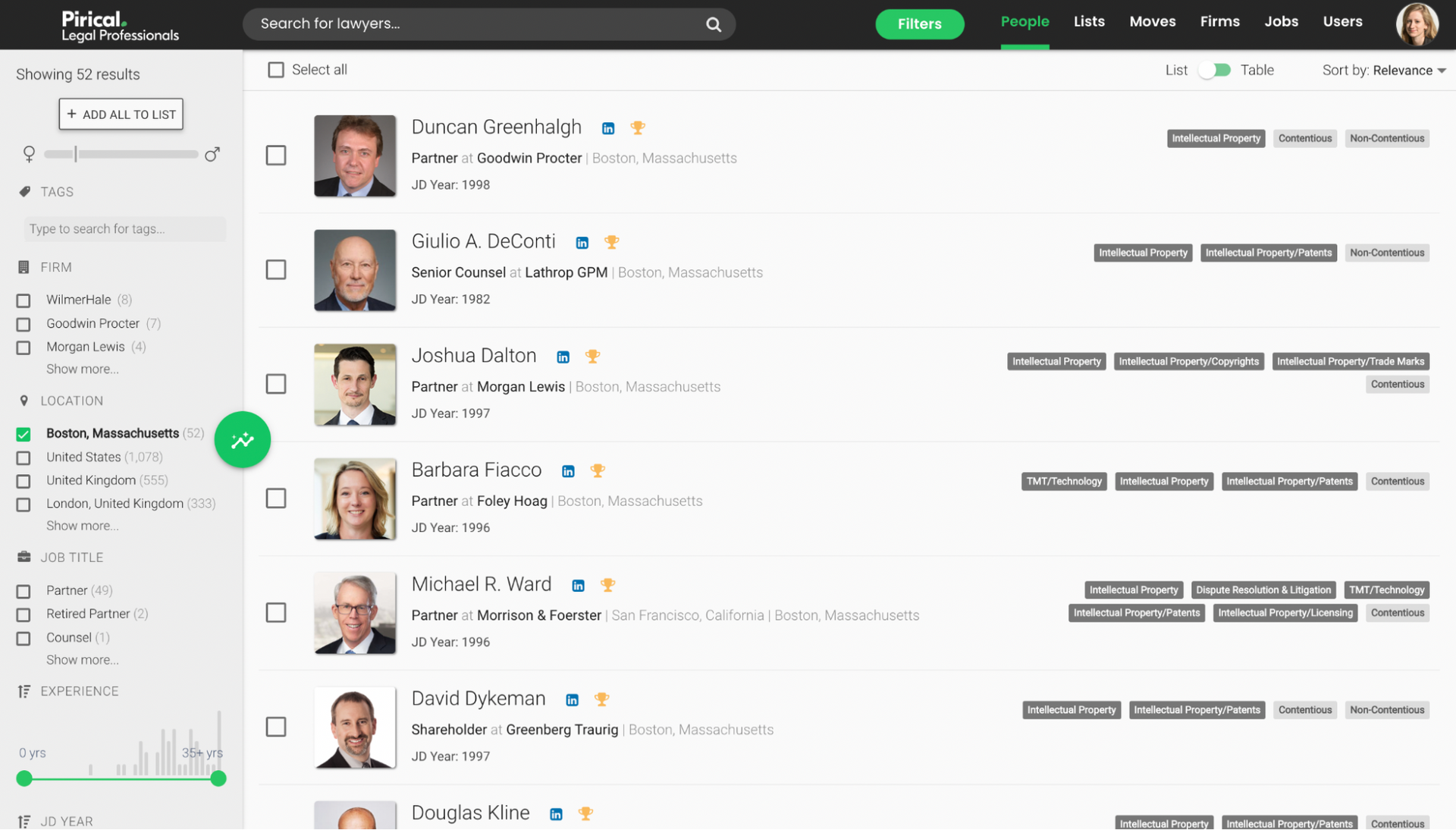Running Up That Hill: Five issues shaping social mobility in the legal profession
Like many industries, the legal profession has a social mobility problem. Although many firms have been working hard to become more diverse, they still have a long way to go. Data can help by uncovering issues, putting them in context and helping firms take the right action. But collecting this data can be a challenge in itself.
We held a panel exploring these topics last week, with speakers from two major law firms and a leading inclusion consultancy. We wanted to understand how firms can do better, by gathering richer data and working to remove obstacles to employee progression. It was a lively debate, with a lot of audience participation and positive feedback.
We dug deep into the issues – not only to see how they’ve emerged, but also to identify the steps we can take to start solving them. From resource management to making people feel safe, read on for our five key takeaways from the session.

1. The difference between who gets in and who gets ahead
Even if it looks like your firm has an increasingly broad church, more granular data could tell a different story.
By analysing multiple firms who use Pirical, the data suggests that diversity tends to decline with seniority, due to attrition and slower progression along the way. This means fewer people from lower socioeconomic backgrounds reach the top.
Our speakers expressed similar points: “traditionally, law has emphasised being ‘reassuringly expensive’,” one panelist said. By hinging on social capital, things like accents have become a proxy for talent, which has made it harder for underrepresented candidates to break through. For those that do win a training contract, persisting attitudes can mean they’re given less impactful work, which holds them back.
Our audience suggested one solution here lies in resource managers. By ensuring those in gatekeeping roles understand diversity, they can challenge old behaviours and champion underrepresented staff. As a result, a more diverse set of people can get staffed on crucial matters and ultimately, get ahead.
2. The reality of working in law
Another recurring theme during our session was the reality of working at a law firm. “In our pursuit of democratising access, I’ve taken it for granted that people will understand what it means to be a lawyer,” one speaker said.
There’s a tension between traditional working practices and the need to make firms more diverse. The reality is that firms are built on a model that relies on billable hours requirements, which can translate to much longer hours than other professions. Even if firms want to change these practices, culture shifts like this take time. So in the meantime, more needs to be done to prepare new hires for the sacrifice involved with a job in law, especially those who haven’t had lawyer parents.
But there are deeper, more problematic issues at play too. Audience members mentioned the racism and bullying that people from lower socioeconomic backgrounds can experience, which is obviously unacceptable. It goes without saying that systemic racism needs to be rooted out from the legal profession. If firms are to attract diverse talent – and allow them to progress in the same way as everybody else – they must start there.

3. More trust breeds richer data
Another common challenge is collecting reliable data, particularly when it comes to candidates’ and existing hires’ backgrounds. Response rates can be a real issue, since people often don’t feel safe enough to answer questions about class and race honestly.
Sometimes it starts at the top. When senior figures speak openly about their family background, professional experiences and problems they’ve faced along the way, it encourages others to do the same. Another way to drive up response rates is to explain precisely what you’re going to do with personal information, to make applicants and staff feel at ease.
A simple way to make data collection more transparent is to include explanatory text in questionnaires, which tells candidates how their input helps improve the firm. “Without safety, there’s no inclusion,” one speaker said. It may sound simple, but a lot of that sense of safety can be achieved through clearer communication.
4. The jargon doesn’t work in real life
The way we talk about social mobility can feel overly dry and technical. In normal conversation, people rarely say things like “low socioeconomic background”, but more familiar terms like “working class” have their own limitations too. In any case, people may prefer to avoid the stigma attached to either of these terms, in the same way that they may choose not to disclose that they received free school meals.
“You need to have two conversations at the same time,” one audience member suggested. There’s the hard-edged conversation you have in the boardroom, where it’s about the numbers and convincing decision-makers to take action, by identifying how acute problems are. But there’s also the reality of speaking to people in less formal environments, where the conversation needs to be more human.
5. Holding a mirror to your firm
“If we’re not collecting data, we don’t have an informed strategy,” one speaker said. This idea was echoed by both speakers, in that data should hold a mirror to your firm, so that you can see what’s really going on and come up with a plan of action. Otherwise, “it’s just collecting data for the sake of collecting data.”
The bigger step is publishing your findings, so that your firm can put a stake in the ground and be held accountable moving forward. This level of openness won’t be right for every organisation, but by publicly sharing your people data, it can show that you're serious about addressing diversity issues. This doesn’t just incentivise staff to stay with you, it also encourages people from more diverse backgrounds to apply.
Still, getting your data to a point where you can share it – internally or otherwise – is easier said than done. As we’ve seen, there are plenty of things you can do to put your firm on the road to improvement when it comes to socioeconomic diversity. But whatever approach you take, this type of data can be messy, hard to analyse and difficult to scale.
Sometimes getting started can be the hardest part. With Pirical On Demand, it's easier to get value out of your people data, without the need for an army of analysts and engineers.
Learn more and book a demo here.
Subscribe to the latest data insights & blog updates
Fresh, original content for Law Firms and Legal Recruiters interested in data, diversity & inclusion, legal market insights, recruitment, and legal practice management.
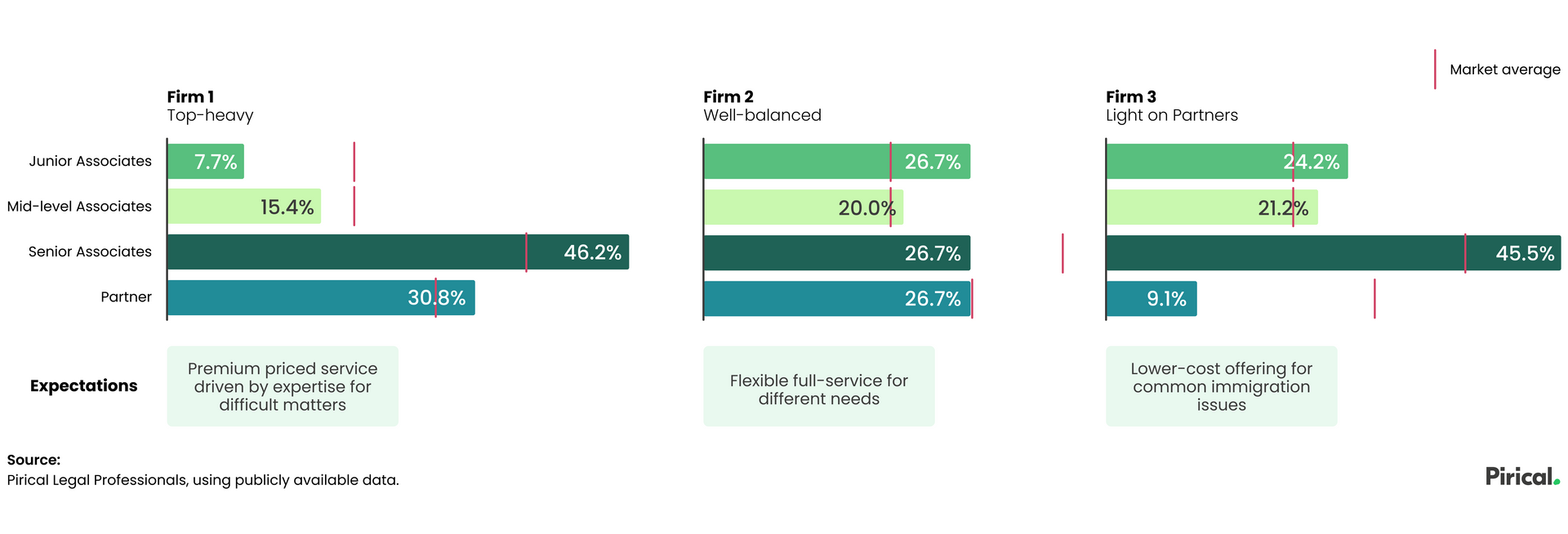
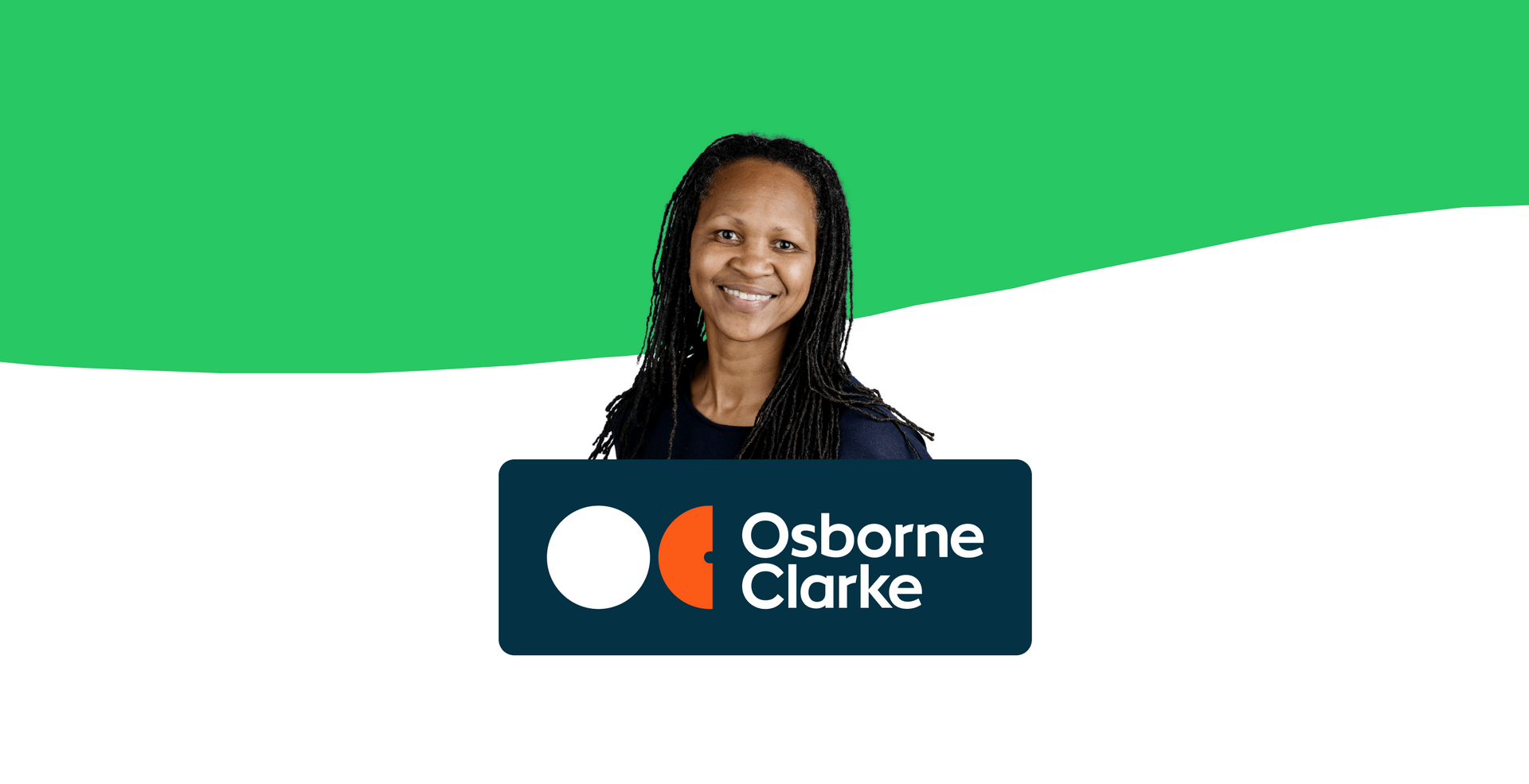
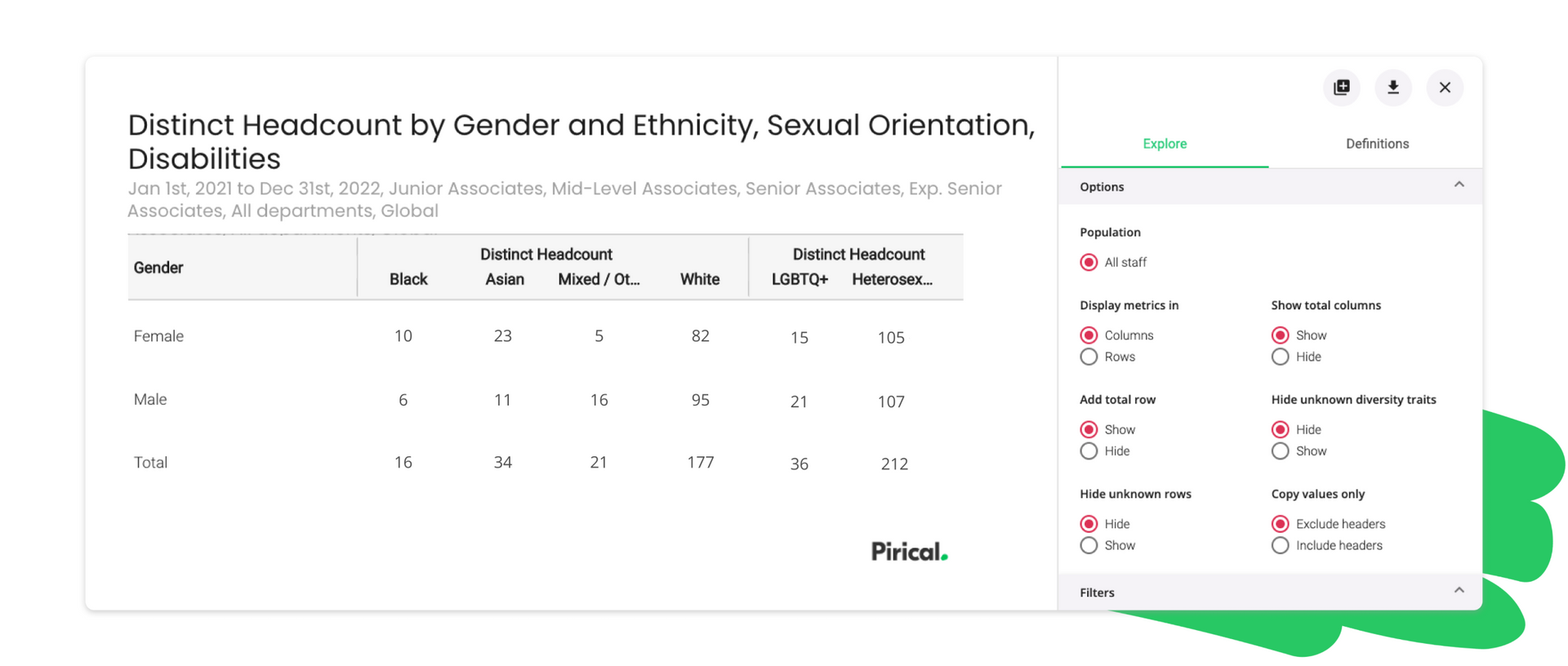
Products
Pirical
81 Paul Street
EC2A 4NQ
info@pirical.com
Copyright Pirical
2024
Certified by
Cyber Essentials Plus

